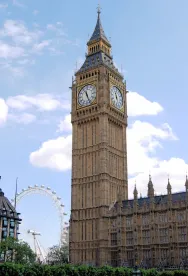On Tuesday, the English High Court will issue its much-anticipated ruling in “test cases” for coverage of business-interruption losses during the COVID-19 pandemic under sample policy wordings. Irrespective of the outcome, the London court’s ruling promises to be a significant development for the insurance markets in the UK, as billions of pounds in potential insurance claims are at stake and––beyond this––policyholders and/or insurance companies can be expected to argue that one or another of the findings supports their position(s) for interpreting similar policy language in future COVID-19 business-interruption coverage cases.
The FCA Test Case
In the first action of its kind since the agency was established in 2013, the British markets regulator, the Financial Conduct Authority (FCA), engineered the test case process earlier this year to seek legal clarity over insurance companies’ obligations to cover business-interruption claims in the context of the ongoing COVID-19 pandemic. Brought before the English High Court (a trial level court in the UK), the FCA test case involves around 370,000 policyholders and eight insurance companies. The case was heard by Judge Christopher Butcher, who sits in the Commercial Court, and Judge Julian Flaux from the Court of Appeal. Experienced English counsel prepared and presented arguments to the tribunal for expedited consideration and resolution. The FCA hired a solicitor firm, which instructed well-regarded barristers from Devereux Chambers and Fountain Court Chambers; the insurers engaged their own solicitors and barristers.
At issue are 17 sample business-interruption policy wordings. In particular, the FCA test case focuses on two coverage extensions related to: (1) the denial of access to insured property, or (2) claims in which a notifiable disease has occurred at or within a specified radius of the insured property. The policy wordings and issues raised in the FCA test case do not require physical loss or damage to the insured locations as a prerequisite to establish coverage.
During the eight-day hearings held in July, the FCA argued in favor of coverage and contended, inter alia, that neither the total closure of premises nor complete physical obstruction was required to trigger coverage. The FCA claimed that the government’s lockdown restrictions triggered coverage under the sample policy wordings because the restrictions prevented businesses from operating as usual. According to the FCA, coverage applies if the business-interruption loss was caused by COVID-19 more generally, and not just by a case of COVID-19 within a certain distance of the insured premises.
On the other hand, the insurance companies argued, in part, that only a complete cessation or hindrance to access of the policyholder’s business triggers coverage. According to the insurers, following mere advice or guidance from the government that was not mandatory does not suffice to trigger coverage under the sample policy wordings. In addition, the insurance companies contended that government guidance and legislation caused the business-interruption losses nationwide, distinguishing that cause from locally-proven cases of COVID-19 found within a certain radius of each insured location as required by the sample policy wordings.
The Potential Impact of the High Court’s Decision
The High Court’s ruling will bind only the eight insurers named in the case as respects similar policy wordings which are governed by UK law. It is not intended to encompass all possible UK business-interruption disputes with similar policy wording, nor is it intended to determine how much, assuming the court enforces coverage, the insurers actually owe in specific claims under the policy wordings at issue.
Whether coverage exists for a particular business interruption due to COVID-19 will depend, as always, on the particulars of the policyholder’s facts, specific policy language and the governing law in the applicable jurisdiction. In this regard, as mentioned above, it is worth noting that the FCA test case did not address policy wordings requiring “physical loss or damage” to insured property and similar wordings that (as we have discussed in previous posts) insurers in the US cite in their efforts to foreclose coverage.
In any event, the High Court’s ruling will very likely not be the last word in the UK, as the parties have indicated their intention to appeal any adverse findings on an expedited basis.






 />i
/>i

